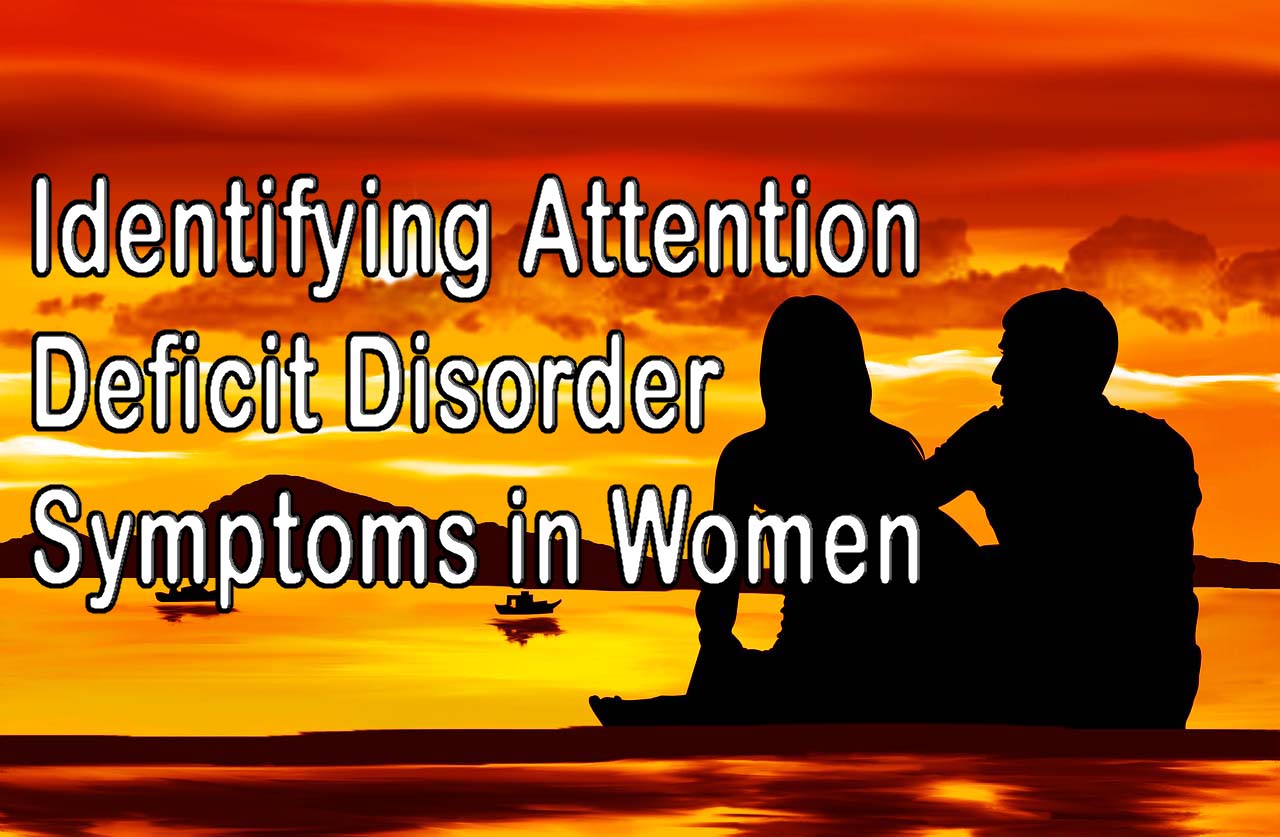Identifying Attention Deficit Disorder Symptoms in Women
Welcome to our article on attention deficit disorder symptoms in women. Attention deficit disorder, commonly known as ADD, affects both men and women, but women often face unique challenges. The symptoms of ADD in women can be difficult to identify, making it crucial to raise awareness and prioritize early detection and management.

In this section, we will delve into the importance of identifying ADD symptoms in women, explore the unique challenges they may face, and discuss why early diagnosis and management are essential.
By the end of this section, you will have a better understanding of attention deficit disorder symptoms in women and how it impacts their daily lives.
Understanding Attention Deficit Disorder (ADD)
Attention deficit disorder (ADD) is a neurodevelopmental condition that affects individuals of all ages. It is characterized by difficulty with focus, attention, organization, and impulse control. While commonly associated with children, ADD can persist into adulthood, and the symptoms may manifest differently in women than in men.
Research suggests that women with ADD may experience unique challenges related to self-esteem, relationships, and employment. These challenges can exacerbate symptoms, leading to additional stress and difficulties in daily life. Proper identification and treatment of ADD symptoms in women are crucial to mitigating these challenges and improving overall quality of life.
Causes of Attention Deficit Disorder Symptoms in Women
The specific reasons for ADD are not completely perceived. However, studies suggest that genetics, brain chemistry, and environmental factors can play a role in its development. Women with ADD may also experience hormonal fluctuations during pregnancy, menstruation, and menopause that can worsen symptoms.
Impact of Attention Deficit Disorder Symptoms in Women
| Impact of ADD on Women | Symptoms |
|---|---|
| Self-esteem | feelings of inadequacy, shame, and guilt |
| Relationships | difficulty with communication, social skills, and intimacy |
| Employment | trouble with time management, organization, and meeting deadlines |
Untreated or undiagnosed ADD symptoms in women can lead to anxiety, depression, and other mental health issues. It can also create additional challenges such as poor time management and decreased productivity.
Diagnosis and Treatment Options for Attention Deficit Disorder Symptoms in Women
Diagnosis of ADD in women typically involves a comprehensive evaluation by a healthcare professional. This can include a review of medical history, physical exam, psychological testing, and symptom assessment. Once diagnosed, treatment options may include medication, therapy, coaching, and lifestyle changes, such as exercise and diet.

It’s essential to seek proper diagnosis and treatment for ADD symptoms in women to reduce the impact on mental health and daily life. A tailored approach is necessary to address the unique challenges and symptoms experienced by women with ADD.
Common Attention Deficit Disorder Symptoms in Women
Women who have attention deficit disorder (ADD) deal with a range of challenges that can impact their daily lives. Understanding the common symptoms of ADD in women can help with early diagnosis and treatment. Below are some of the most widespread symptoms:
| Symptom | Description |
|---|---|
| Difficulty focusing | Having trouble concentrating on tasks or conversations for extended periods. Easily distracted. |
| Time management difficulties | Struggling to plan and prioritize activities, leading to being chronically late and missing deadlines. |
| Organization challenges | Difficulty with organization, including keeping track of possessions, paperwork, and appointments. |
| Impulsivity | Acting without thinking through the consequences of their actions. Women with ADD may make hasty decisions, interrupt others while they are speaking, or have difficulty waiting their turn. |
| Emotional dysregulation | Experiencing intense emotions that are difficult to manage, including irritability, frustration, and mood swings. |
It’s important to remember that these symptoms can differ from woman to woman, and may overlap with other disorders such as anxiety or depression. This is why it’s crucial to seek proper diagnosis and treatment from healthcare professionals.
Less Recognized Attention Deficit Disorder Symptoms in Women
Attention deficit disorder symptoms in women are sometimes subtle, making them more challenging to identify. However, by recognizing these less recognized symptoms, women can take a proactive approach towards their diagnosis and treatment.
Self-Esteem
Low self-esteem can be a significant challenge for women with attention deficit disorder. Women in this group may struggle with feelings of inadequacy and self-doubt, leading to poor self-image and self-criticism. This can cause them to doubt their abilities and question their worth, leading to a lack of confidence in their personal and professional lives.

Relationships
Women with attention deficit disorder also face difficulties in building and maintaining relationships. These can be romantic relationships, friendships, or family relationships. A lack of focus and attention can cause women to miss important details or forget about commitments, leading to feelings of neglect and frustration among loved ones.
Employment
Attention deficit disorder can also affect women’s employment. They may struggle with time management, organization, and meeting deadlines, leading to work-related stress and anxiety. They may also experience difficulties with multitasking and adapting to change, which may impede their career growth.
| Effects of ADD on Employment | Challenges |
|---|---|
| Lower job satisfaction | Difficulties with organization and time management |
| Decreased productivity | Procrastination and lack of focus |
| Increased stress | Difficulty multitasking |
Impact on Daily Life
Women with attention deficit disorder may find it difficult to maintain a balanced and healthy lifestyle. They may struggle with managing household tasks, such as cleaning, cooking, and shopping, leading to feelings of overwhelm and frustration. Additionally, they may experience difficulties with maintaining a consistent exercise routine or a healthy diet, leading to poor physical health.
- Challenges in managing household tasks
- Difficulty maintaining a healthy lifestyle
- Issues with time management and organization

By recognizing the less recognized symptoms of attention deficit disorder in women, individuals can take the first step towards managing their condition. Seeking a proper diagnosis and treatment can enable women to lead fulfilling lives with the right support and resources.
Impact of Attention Deficit Disorder on Women’s Mental Health
Untreated or undiagnosed attention deficit disorder (ADD) can have a profound impact on women’s mental health. Women with ADD are at a higher risk of developing anxiety, depression, and other psychological issues than those without. The persistent challenges of managing ADD symptoms can also take a toll on self-esteem and overall well-being.
The Link Between ADD and Mental Health
Research indicates that women with unmanaged ADD experience higher rates of anxiety and depression than those without. The constant struggle to stay organized and manage time effectively can lead to feelings of overwhelm, stress, and helplessness. This stress can extend beyond daily responsibilities and impact relationships and social interactions as well.
Women with ADD may also face challenges in processing emotions, leading to heightened sensitivity and mood swings. They may struggle to regulate emotions effectively, leading to impulsive behavior or intense emotional reactions. This can make it challenging to maintain healthy relationships and can exacerbate feelings of anxiety and stress.
The Importance of Addressing ADD and Mental Health
It is vital for women with ADD to receive early diagnosis and appropriate treatment to manage their symptoms and minimize the impact on their mental health. Women with ADD may benefit from therapy, medication, or a combination of both to manage their symptoms effectively. By addressing ADD and related mental health issues, women can improve their quality of life and overall well-being.
Seeking Diagnosis and Treatment for Attention Deficit Disorder in Women
When it comes to attention deficit disorder symptoms in women, seeking proper diagnosis and treatment is critical. It is essential to consult with healthcare professionals such as psychiatrists and psychologists who specialize in ADD. Due to the unique challenges faced by women with ADD, a tailored approach to treatment is necessary.
Diagnosis of ADD in women involves an evaluation of symptoms, medical history, and a physical examination. It is essential to rule out other medical conditions that can mimic ADD symptoms, such as thyroid disorders or depression. A comprehensive assessment can provide a precise diagnosis and ensure that the treatment plan is appropriate for the individual’s specific needs.
The treatment for ADD in women may include medication as well as specific behavioral interventions. Medications such as stimulants can improve focus and concentration, while non-stimulant medications may be prescribed for women who do not tolerate or respond to stimulants. Behavioral interventions may include therapy, coaching, and skills training to address organizational, time management, and other executive functions.
Another critical aspect of treatment for ADD in women is self-care. Women with ADD may experience higher levels of stress and anxiety and may benefit from stress management techniques such as mindfulness, yoga, or meditation. It is also important to prioritize sleep, exercise, and healthy eating.
Support from family and friends and participation in support groups can also be beneficial for women with ADD. Support groups offer a sense of community and a safe place to share experiences and receive practical advice on managing ADD symptoms.
Effective Herbal Remedies for Attention Deficit Disorders
Conclusion
In conclusion, identifying attention deficit disorder symptoms in women is crucial for their overall well-being and quality of life. Women with ADD face unique challenges that often go unrecognized, leading to negative impacts on their mental health and daily functioning.

By understanding the common and less recognized symptoms of ADD in women, individuals can seek appropriate diagnosis and treatment. It is essential to consult with healthcare professionals to determine a tailored approach that works best for each individual.
Early intervention and management can significantly improve the lives of women with ADD, helping them overcome obstacles and achieve their goals. Raising awareness about the importance of recognizing attention deficit disorder symptoms in women and providing access to resources and support is fundamental to ensuring women receive the care they need.
Remember:
If you or a loved one is experiencing symptoms of attention deficit disorder, seek help from a qualified healthcare professional. Early intervention can be the key to success in managing ADD symptoms and achieving a fulfilling life.
FAQ
What is attention deficit disorder (ADD)?
Attention deficit disorder (ADD), also known as attention deficit hyperactivity disorder (ADHD), is a neurodevelopmental disorder characterized by difficulties in attention, hyperactivity, and impulsivity. It affects both children and adults.
What are the symptoms of attention deficit disorder in women?
The symptoms of attention deficit disorder in women can vary, but common signs include difficulty with focus and organization, impulsivity, forgetfulness, and emotional regulation challenges. It is important to remember that symptoms may manifest differently in women compared to men.
How is attention deficit disorder diagnosed in women?
To diagnose attention deficit disorder in women, healthcare professionals typically conduct a comprehensive assessment. This may involve interviews, questionnaires, and observations to evaluate symptoms, medical history, and functional impairments. It is essential to consult with a healthcare professional for an accurate diagnosis.
What treatment options are available for attention deficit disorder in women?
Treatment for attention deficit disorder in women may include a combination of strategies such as medication, therapy, lifestyle changes, and support systems. The specific treatment plan will depend on individual needs and may be adjusted over time to achieve optimal symptom management and overall well-being.
Can untreated attention deficit disorder in women impact their mental health?
Yes, untreated attention deficit disorder in women can have a significant impact on mental health. It may increase the risk of developing anxiety, depression, low self-esteem, and other psychological issues. Seeking proper diagnosis and treatment is crucial for addressing both the physical and mental aspects of ADD.
How can women seek proper diagnosis and treatment for attention deficit disorder?
Women can seek proper diagnosis and treatment for attention deficit disorder by consulting with healthcare professionals, such as psychiatrists, psychologists, or specialized ADHD clinics. These professionals can conduct a thorough evaluation and develop a personalized treatment plan based on individual needs.
What resources and support are available for women with attention deficit disorder?
There are numerous resources and support systems available for women with attention deficit disorder. These include support groups, educational materials, online communities, and advocacy organizations. It is essential for women to access these resources to gain knowledge, connect with others, and find the support they need.

